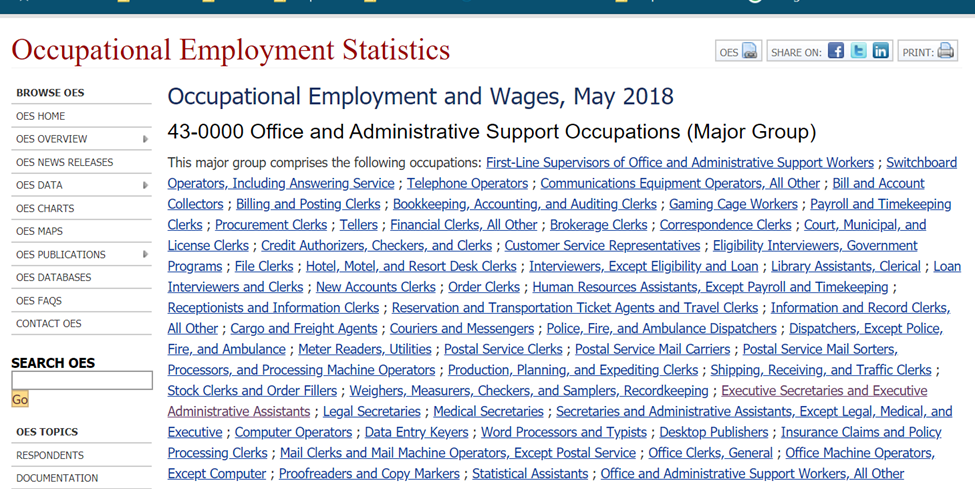
Is the C-suite really where you want to be? asks Kemetia Foley
There’s a common perception that the most important rung in the career ladder for administrative professionals is the C-suite job. It’s a frequently asked question on discussion threads and podcasts: How does one move from being an administrative assistant into working for the CEO or COO as an Executive Assistant?
I think the traditional answer goes something like this:
As you garner tenure as an assistant, you need to take on larger projects with more responsibility, focusing on budgetary issues, projections. You build trust by completing projects on time and within budget. You focus on not just keeping the trains running on time but helping to decide on new train designs and tracks for them to travel on. And, you put your name in the hat when the right C-suite position opens for you.
There’s no exact formula, more of a general understanding of what it takes to do the job, and the willingness to consistently work at the level and pace required.
To me, the real question is:
Why do you want to work in the C-suite?
What is your motivation? The purpose behind it? Do you believe that to be the only next step available to you? Do you enjoy a tremendous challenge? Is it the hope that the pay increase will more than offset the loss of personal time? Will getting a C-suite position serve as a signal to the world that you’ve reached the pinnacle of the administrative profession?
The perceived glamour of working in the C-suite may be the biggest roadblock to success for the administrative professional. The reality of working in the C-suite from my own experience has, in the past, meant being on-call 24-7. It’s meant spending hours mapping out contingency plans for events, meetings, and travel. It can mean being willing to sleep with your work phone next to you. Blind pursuit of the title and role within the executive offices could mean missing out on other, equally rewarding opportunities – both in salary and in career-satisfaction.
What’s in a title?
While the research and demonstrable efforts continue with the World Administrative Summit surrounding the idea of creating a comprehensive, career path with measurable and definable skills aligning with globally consistent titles, the reality in the United States is that titles can seem to be assigned arbitrarily. Skills are measured for some positions and not for others.
The well-respected administrative assistant who has reached the peak pay ceiling at their company may be provided the title of Executive Assistant in lieu of a pay increase without ever having booked travel, negotiated a hotel contract, or implemented a major project with overarching budgetary implications. Or, Jeff works for a VP who is promoted to COO, so Jeff gets a de facto promotion to corporate as well.
Worse yet, many a company demands the skills, savvy, and time dedication of a C-suite executive assistant but titles it as a Coordinator or Administrative Assistant position simply to keep it within a conveniently budget-friendly pay band. I’ve observed this first-hand throughout my years in the workforce.
The Top Rung of the Administrative Ladder?
So again, back to the question. Why is it that the working in the C-suite is presented as the only viable option as the top rung of the administrative career ladder? Are there not equivalent pay and responsibility positions as Office Manager or Administrative Manager? How would it impact your job search if there were an administrative secretary position with working hours of 9am to 5pm, but offered a considerable increase in salary?
I’m not opposed to administrative professionals pursuing more responsibilities for higher pay or more power in the decision-making process. What I am concerned about is seeing the C-suite being held up as the sole, ultimate gold medal job that admins should strive to land, when the reality is that there are equally compelling and challenging administrative positions available to pursue outside the C-suite.
Administrative Job Titles
Let’s take look at administrative job titles as listed through the United States Bureau of Labor Statistics (BLS) (Figure 1).

Figure1: Source: https://www.bls.gov/oes/current/oes430000.htm 10/22/2019
This category encompasses many positions which may not naturally come to mind when discussing the administrative profession. Early in my BLS research, I would have never considered fire and police dispatchers to be administrative support occupations. However, if you reflect on the purpose and not the setting for the work, it makes more sense.
Let’s look at how US BLS defines these traditionally recognized administrative titles (Figure 2).

Figure 2
Note there is no mention of a reporting hierarchy. No parameters requiring C-suite placement for the job title. Just by looking at this definition from 2018, you can sense the behemoth task the World Summit delegates face to create the career progression rubric. I suspect many an executive administrative assistant would believe the definition above better aligned with current postings for entry-level administrative assistants. The sentence ‘May also train and supervise lower-level clerical staff’ seems like an add-on to differentiate this title from administrative assistant.
How does BLS define Administrative Services Manager?

Figure 3: Bureau of Labor Statistics, U.S. Department of Labor, Occupational Outlook Handbook, Administrative Services Managers, on the Internet (visited October 07, 2019).
Many assistants direct and coordinate supportive services of an organization while supporting one or more executives (Figure 3)? Again, the definition relates to the support role intent, not a corporate organizational chart.
And salary?
Here’s the comparison (Figure 4).

Figure 4: Source: BLS.gov
Wait. What? That’s quite the annual wage differential! By the way, the Administrative Services Manager title is not listed under Office and Administrative Support, it is listed under Management Occupations.
What is Your Career Goal?
If your career goal includes the pursuit of working in the C-suite, I encourage you to ask yourself why. Do you want to provide heavy-gauge administrative support and crave the challenge and the pace the role demands? Then pursue it! Do you want the power of being connected at the top of your company? Great. Have no shame in your game.
However, if you find you are driven by salary needs, do your research. Utilize the US Bureau of Labor Statistics Employment and Wages tool to determine where you are in relation to the where you want to be. Traverse the landscape of job titles. Notice just how many of the responsibilities are revealed to include the work which experienced administrative professionals are already doing. For colleagues not in the United States, I suggest trying to locate an equivalent government body in your country.
There are many ways to reach the top. Remember though, each person gets to define what their ‘top’ is. It may or may not include working in the C-suite.












